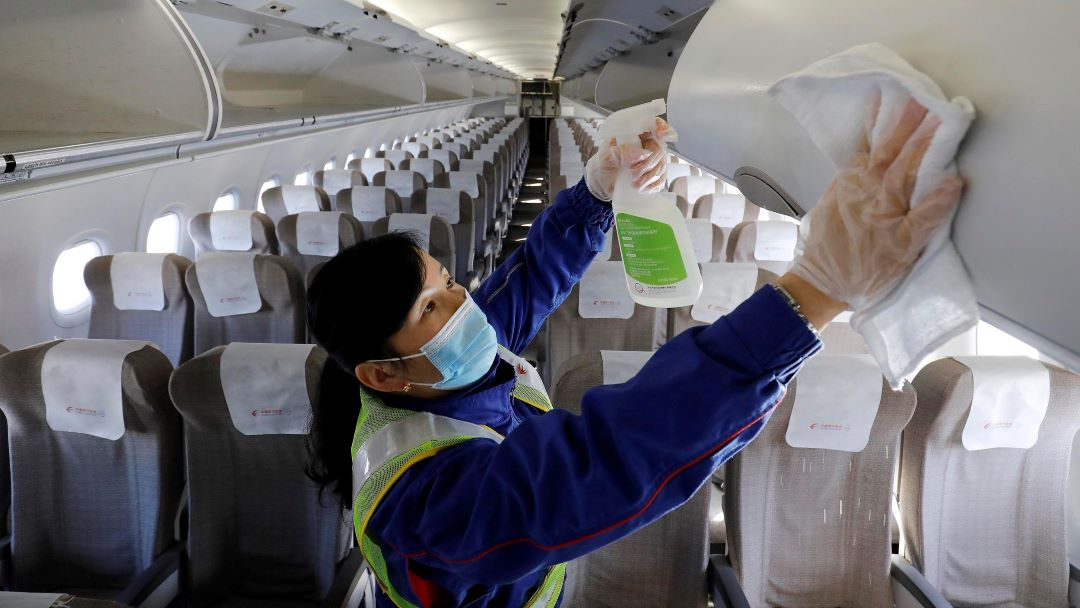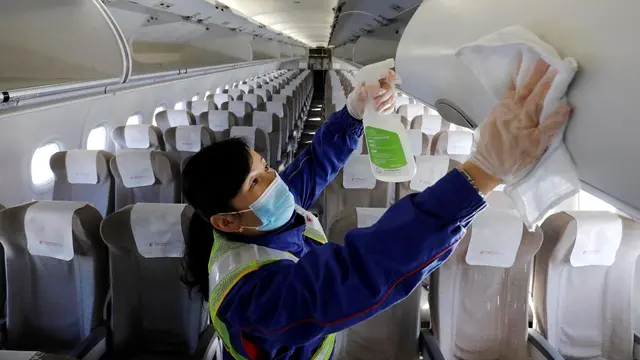
A China Eastern Airlines staff disinfects the cabin to prevent the spread of COVID-19, February 18, 2020. /VCG
The global airline industry is facing an unprecedented challenge in the face of COVID-19. Travel restrictions have seen profits and passenger numbers tumble. The International Air Transport Association estimates losses from coronavirus could amount to 314 billion U.S. dollars, with passenger revenue forecast to plummet by 55 percent in 2020. As some countries have begun to ease lockdowns, governments and airlines must wrestle with the notion of how to resume passenger flights whilst preventing the spread of the virus.
U.S. airlines are the latest in a long list to mandate passengers wear face masks whilst flying.In the Middle East travel hub of Dubai, temperature checks scan anyone entering the airport for signs of a fever. Some airlines are even trying to bring social distancing to the cramped confines of air travel, keeping the middle seat empty on flights. Regardless of whether the science backs up such measures, John Strickland from JLS Consulting warns it would be costly. The aviation expert said "it could even pretty well break the business model of many of the airlines because really to achieve social distancing on a plane means you're only going to fly about a quarter full."
Dubai-based Emirates have at least once used a pre-departure blood test before boarding to check passengers for COVID-19. However there's been no indication the airline intends to make this common practice, with such procedures likely to add time and costs to their operations.
To contend with coronavirus, Air Canada also announced that no one will be allowed to board its flights without a pre-departure temperature check, and passengers must also complete a health questionnaire before they are cleared to board.
The airline has stopped offering pillows and blankets, instead giving each passenger a "care kit" for hand cleaning and hygiene.
Other measures taken by airlines include spray-disinfecting the passenger cabin and cockpit on flights.
Amid the plunge in passenger traffic a number of major airlines around the world have already sought government support.
Andrew Charlton, managing director of Aviation Advocacy, said it's a trend that's likely to continue as nations provide financial aid in return for equity. But he questions the long-term sustainability of such measures "because governments really will have quite enormous debt issues and won't have a lot of money to splash around. Airlines are very capital intensive."
Even if more passenger flights should soon be returning to the skies, the economic turbulence appears far from over.
 简体中文
简体中文

